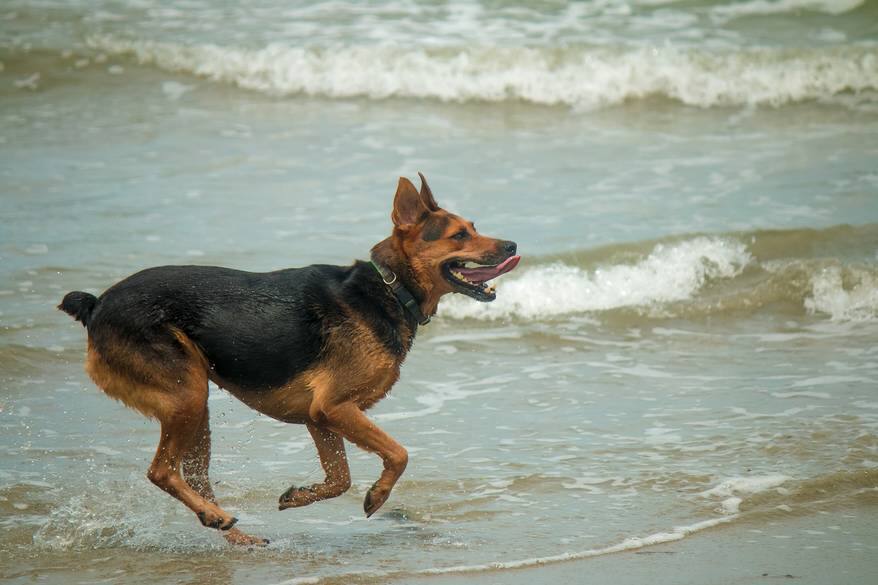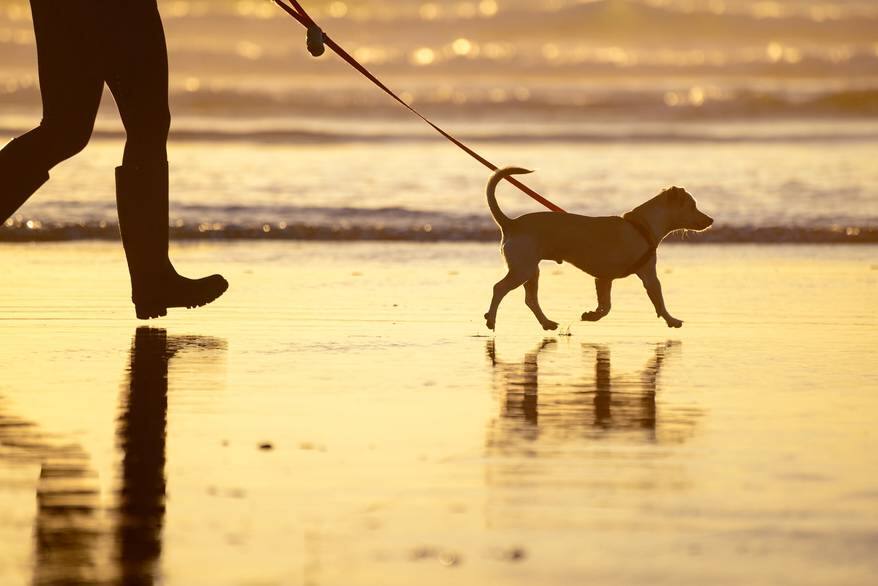
-
Find the right food for your pet
Take this quiz to see which food may be the best for your furry friend.
Find the right food for your pet
Take this quiz to see which food may be the best for your furry friend.
Featured products
 Adult 7+ No Corn, Wheat, Soy Chicken & Brown Rice Dog Food
Adult 7+ No Corn, Wheat, Soy Chicken & Brown Rice Dog FoodSupports energy level and beautiful coat in mature dogs
Shop Now Adult Perfect Weight & Joint Support Chicken Recipe Dry Dog Food
Adult Perfect Weight & Joint Support Chicken Recipe Dry Dog FoodThis weight management and mobility support dog food was created with Hill’s unique understanding of the biology of overweight dogs.
Shop Now Adult 7+ Perfect Digestion Chicken, Whole Oats & Brown Rice Recipe Dog Food
Adult 7+ Perfect Digestion Chicken, Whole Oats & Brown Rice Recipe Dog FoodScience Diet's breakthrough nutrition supports ultimate digestive well-being & healthy microbiome for dogs age 7+
Shop NowFeatured products
 Adult Perfect Digestion Chicken, Barley & Whole Oats Recipe Cat Food
Adult Perfect Digestion Chicken, Barley & Whole Oats Recipe Cat FoodScience Diet's breakthrough nutrition supports ultimate digestive well-being & healthy microbiome
Shop Now Adult Savory Chicken Entrée Cat Food
Adult Savory Chicken Entrée Cat FoodPrecisely balanced nutrition with the delicious taste of savory minced chicken to help fuel the energy needs of cats during the prime of their life
Shop Now Perfect Weight Salmon & Vegetable Canned Cat Food
Perfect Weight Salmon & Vegetable Canned Cat FoodOver 70% of cats lost weight within 10 weeks when fed this nutrition
Shop Now -
Dog
- Dog Tips & Articles
-
Health Category
- Weight
- Food & Environmental Sensitivities
- Urinary
- Digestive
- Joint
- Kidney
-
Life Stage
- Puppy Nutrition
- Adult Nutrition
- Senior Nutrition
Cat
- Cat Tips & Articles
-
Health Category
- Weight
- Skin & Food Sensitivities
- Urinary
- Digestive
- Kidney
-
Life Stage
- Kitten Nutrition
- Adult Nutrition
Featured articles
 The Incredible Science Behind Your Pet's Microbiome
The Incredible Science Behind Your Pet's MicrobiomeLearn what a pet's microbiome is, how it contributes to your pet's gut & overall health, and why nutrition is important in maintaining healthy microbiomes.
Read More Pet Food Storage Tips
Pet Food Storage TipsDiscover how and where to store your dry, as well as canned, dog and cat food. Learn how to find the "best before" dates on all Hill's pet food packaging.
Read More Water
WaterDiscover why water is the most important nutrient for your dog or cat to live a healthy life. Find out how much water your pet should consume each day.
Read More -
Find the right food for your pet
Find the right food for your pet


Are you planning to take your new pup to the beach for the first time? As the weather starts to heat up, you may be excited to take him — but you may not be sure what to expect. Chances are you've heard of dog-friendly beaches, but do you know what this means?
The prospect of going to a dog-friendly beach may spark some new questions: Where should you go? What should you bring? Check out this handy guide, which could help you plan for taking your dog to beach.
Plan Ahead

Dog-friendly beaches are not usually hard to find, but it can take some investigating. Many beaches that allow dogs have rules — from requiring them to stay on a leash and keep out of specific areas to rules for you about picking up after your dog. If you have a particular beach in mind, call the beach management office or look online to familiarize yourself with the rules.
If you'd like to let your dog run free, you might need to search for a beach that allows dogs to run off-leash. Keep in mind that this might require a longer trip than you were anticipating. Therefore, you might have to plan your itinerary accordingly — including breaks from driving so your pet can stretch and use the bathroom. If you'll be traveling away from home, it's also a good idea to look up contact information for emergency veterinary clinics near your final destination (just in case your beach buddy runs into trouble).
What to Bring
When you go to the beach, you usually take along more than just your swimsuit. Taking a dog to the beach is no different. Here are some supplies you'll want to bring to keep your pooch safe — and help make the day relaxing and fun:
- Bottled water
- A water dish
- A beach umbrella or shade screen
- An all-weather dog bed or a dog blanket
- A playpen to keep small dogs safely corralled
- Plenty of towels
- Canine sunscreen
- A canine life vest with a handle
- Baggies to clean up after them
- Food and treats
- Floating and waterproof dog toys
- Dog booties to protect his paws from the hot sand
- Doggles (dog goggles) to shield their eyes from sun and salt
- A doggy first aid kit
- A waterproof GPS tracker that can attach to their collar


Tasty Tips
Beach Safety

Even if you're a new pet parent, you probably know by now that dogs are good at getting into scrapes. Follow these tips to minimize your dog's chances of illness or injury:
- Before letting your pup explore, comb the beach for any litter they might try to eat or sharp objects, such as broken bottles, soda cans or seashells that could cause injury.
- Don't let them drink sea water. If you notice signs that he's getting hot or thirsty, offer them plenty of fresh water to drink.
- Protect your pup from getting overheated, which could lead to heat exhaustion or stroke. Keep an eye on them and have them lie on a bed or blanket in the shade and drink water if they start panting a lot or begins acting tired. If they begin to act lethargic or disoriented — or if their breathing doesn't return to normal — contact the emergency vet immediately. Certain flat-faced or extremely fluffy dogs, such as bulldogs and huskies, will need extra supervision to stay cool, says Unleashed.
- Have your dog wear booties to protect their paws from getting burned on hot sand, and dark goggles madefor dogs as eye protection from sun damage.
- Coat the nose, ears, and any other areas with thinning fur with sunscreen made for dogs. Dogs are as susceptible to sunburns and skin cancer as we are.
- Have your dog wear a life vest when going for a swim or engaging in dog water sports. Even dogs who are excellent swimmers can grow tired and run into trouble. A vest with a handle on the back will make it easier to pull them to shore if necessary.
- Make sure your dog wears a collar with his ID, including your contact info, at all times in case you become separated. Consider attaching a waterproof GPS tracker. This is especially important for dogs that get curious of other creatures like seagulls or other dogs at the beach. If your dog is still a puppy and going through training, you will need to keep them tethered to you to prevent them from getting away. It might also be a good idea to wait until they're is old enough and trained to truly enjoy a day at the dog beach.
Take a minute to wash the salt water off your dog's coat once you're tuckered out and ready to go home. This will keep them from itching or licking too much salt off themselves. Most public beaches have a hose or outdoor shower station but be courteous of the humans who may be using it.
With all of this in mind, it might seem like preparing to take your dog to the beach is, well... no day at the beach. But as a good pet parent, you want to do all you can to make your pup's first time at the beach happy and memorable. And once you're prepared, you'll also be ready for future trips, which means those spontaneous beach days with your pooch can become a summer tradition.


Jean Marie Bauhaus is a pet parent, pet blogger, and novelist from Tulsa, Oklahoma, where she usually writes under the supervision of a lapful of fur babies.
Related products

Science Diet's breakthrough nutrition supports ultimate digestive well-being & healthy microbiome for dogs age 7+

This weight management and mobility support dog food was created with Hill’s unique understanding of the biology of overweight dogs.

Supports energy level and beautiful coat in mature dogs

Delicious braised beef paired with tender vegetables in a succulent stew
Related articles

Understand the role that Omega-6 and Omega-3 fatty acids play in your dog's overall health, and how you can ensure they are getting enough.

Proper nutrition for your pregnant or nursing dog is vital to her and her puppy's health. Learn what you should do provide her with the proper nutrients.

Large and giant breed puppies have different nutritional needs than other dogs. Learn how to provide the special care they need to grow up big and strong.

Learn about Hill's puppy food and the nutritional benefit & high quality ingredients that it contains for your pup.

Put your dog on a diet without them knowing
Our low calorie formula helps you control your dog's weight. It's packed with high-quality protein for building lean muscles, and made with purposeful ingredients for a flavorful, nutritious meal. Clinically proven antioxidants, Vitamin C+E, help promote a healthy immune system.
Put your dog on a diet without them knowing
Our low calorie formula helps you control your dog's weight. It's packed with high-quality protein for building lean muscles, and made with purposeful ingredients for a flavorful, nutritious meal. Clinically proven antioxidants, Vitamin C+E, help promote a healthy immune system.

